Navigating Emotions in Addiction Recovery

In the recovery process from addiction, individuals are often confronted with an array of challenging emotions, among which guilt and shame stand out as particularly significant. Understanding and addressing these emotions is critical for an effective rehabilitation journey. While both emotions are connected to feelings of regret and self-assessment, their impacts on recovery can vary considerably.
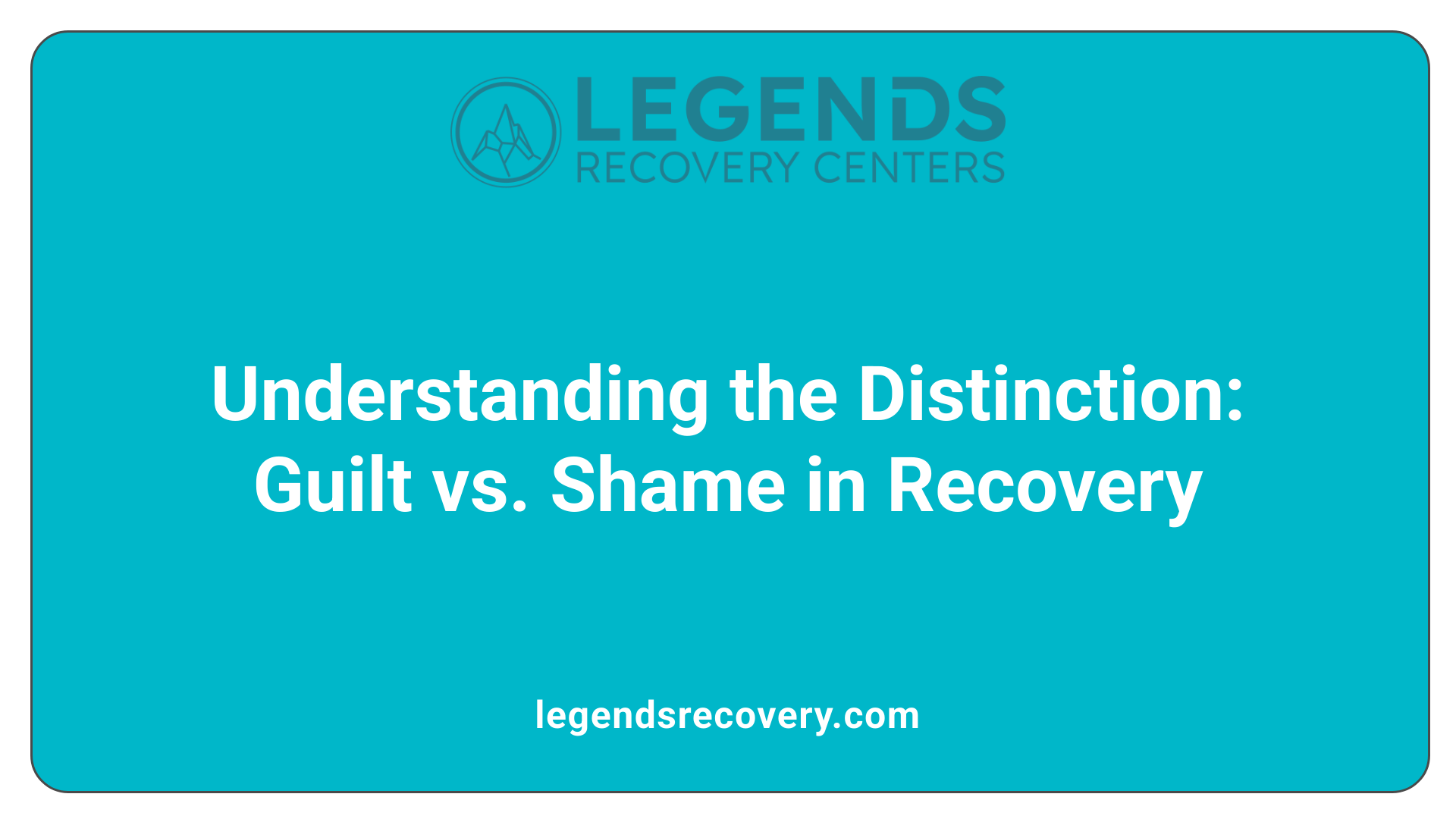
Understanding the distinction between guilt and shame is essential for those on the path to recovery from addiction. Guilt is tied to specific actions, prompting feelings such as "I did something bad." It serves a constructive role by motivating individuals to acknowledge their past mistakes and seek amends. In contrast, shame encompasses a broader, more negative self-evaluation, manifesting as thoughts like "I am bad." This internalized feeling often leads to a sense of unworthiness and can be detrimental to recovery efforts.
Both guilt and shame significantly influence the recovery journey but in different ways. Guilt can actually facilitate healing, encouraging individuals to take responsibility for their actions and make positive changes. This acknowledgment is crucial for recovery as it helps establish accountability.
On the other hand, shame can obstruct progress. The feeling of being inherently flawed can foster isolation and prevent individuals from seeking the help they need. High levels of shame are linked to increased rates of relapse and can exacerbate feelings of hopelessness, creating a vicious cycle of addiction.
Recognizing the difference is vital because guilt can serve as a catalyst for personal growth and behavioral change, while toxic shame can hinder recovery by fostering despair. Healthy guilt guides individuals toward making amends, while toxic shame undermines self-worth and promotes continued substance use.
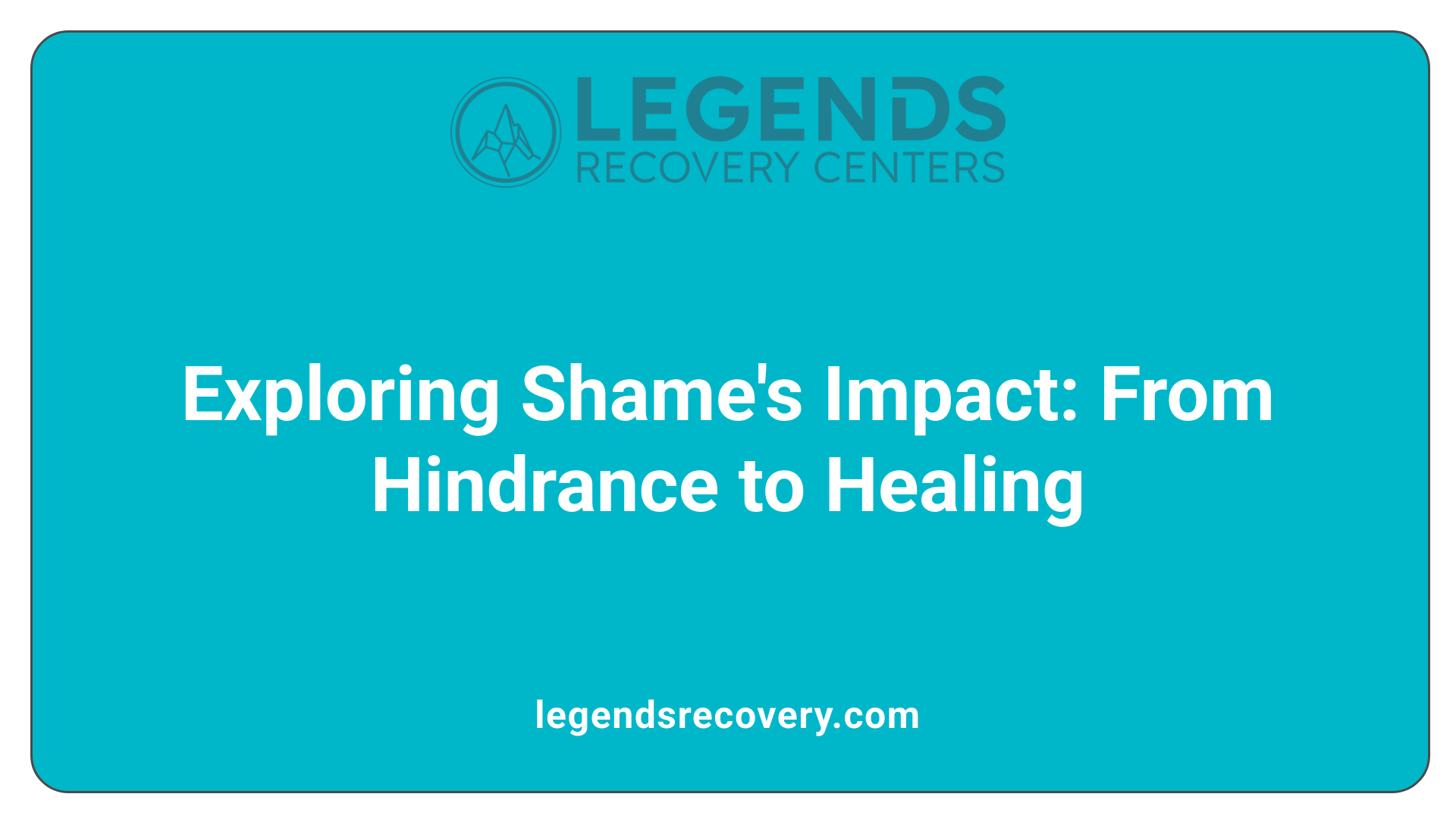
The role of shame in recovery is profound, impacting the journey towards sobriety in various ways. High levels of shame often lead to avoidance and maladaptive behaviors, making it harder for individuals to seek the help they need. This is particularly true for those recovering from alcohol use disorder, where shame can exacerbate feelings of unworthiness and lead to relapse.
Rather than being solely detrimental, however, understanding and addressing shame can facilitate healing. Therapeutic approaches like Motivational Interviewing (MI) have proven effective in helping individuals navigate their feelings of shame. MI fosters self-efficacy and emotional resilience, allowing individuals to engage more thoroughly in their recovery. This method promotes a supportive and empathetic space enabling individuals to reframe their motivations for change. As they begin to view shame as a part of their healing journey rather than a barrier, it can reduce feelings that obstruct progress.
In recovery, confronting shame is essential for lasting change. Techniques such as cognitive-behavioral therapy (CBT) and acceptance-based therapies encourage individuals to observe their thoughts and feelings without harsh self-judgment.
Another effective strategy involves developing self-compassion. Engaging in supportive relationships—whether with therapists, peers, or family—creates a nurturing environment where individuals can confront their feelings of shame without fear of reproach. Building such connections allows for open discussions about past behaviors and encourages self-forgiveness.
Ultimately, effectively managing shame is crucial for fostering a healthier self-relationship and achieving long-term recovery goals.
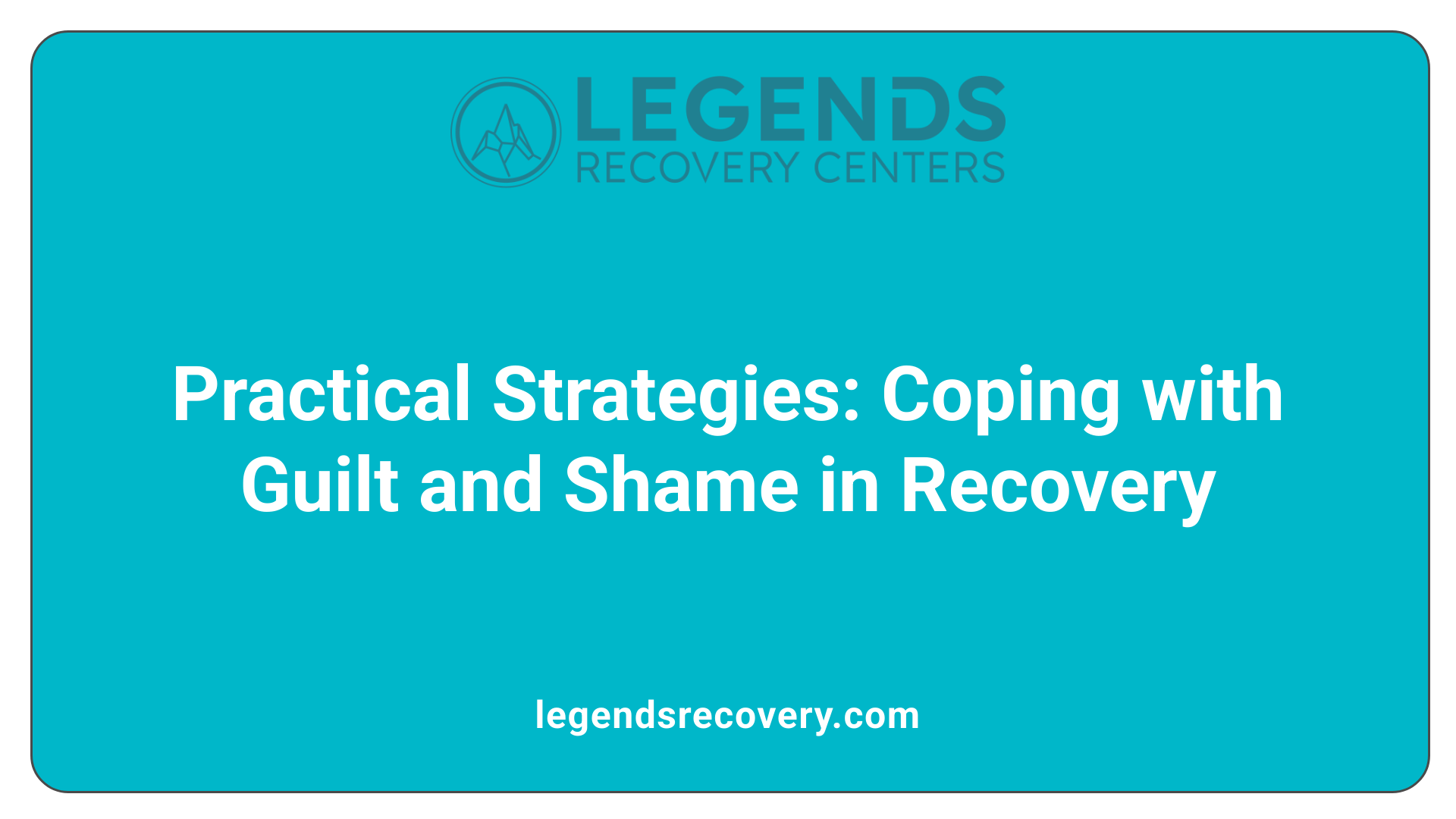
Coping with feelings of guilt and shame during recovery is essential for maintaining emotional well-being. Here are some effective strategies:
Self-forgiveness plays a crucial role in overcoming guilt and shame. It is important for individuals in recovery to realize:
By employing these strategies, individuals can create a healthier emotional environment conducive to recovery.
To address guilt and shame, it’s important to recognize that guilt acknowledges a specific wrongdoing, while shame pertains to a belief about one's entire character. Managing these emotions involves accepting responsibility for your actions, which is essential for self-forgiveness and personal growth. Talking about your feelings with someone can provide a broader perspective and help you cope better. Engaging in healthy emotional outlets, such as exercise or meditation, can reduce the intensity of negative feelings. Lastly, improving your self-talk by replacing negative thoughts with positive affirmations is crucial in breaking the cycle of shame and promoting a healthier self-view.
Guilt and shame are prevalent emotions experienced by individuals in recovery from addiction, deeply influencing their journey towards sobriety. Guilt, often viewed as a constructive feeling, arises when a person recognizes their harmful actions. It can serve as a foundation for seeking forgiveness and making amends, reinforcing the steps needed for personal growth. Conversely, shame is more destructive, leading to feelings of unworthiness that can impede recovery. Individuals suffering from shame may internalize their past, believing they are inherently flawed, which can prevent them from seeking the help they need.
The relationship between guilt, shame, and addiction can create a detrimental cycle. Feelings of guilt can lead individuals to seek temporary relief through substances, which may, in turn, intensify feelings of shame. This cycle often leads to a pattern of self-destructive behavior and emotional distress, making recovery increasingly challenging. Without addressing these emotions, individuals may find themselves stuck in a loop of substance use followed by guilt, leading to deeper shame, and repeating the cycle. Breaking this cycle involves acknowledging and healing from these painful feelings, often requiring therapeutic support and the cultivation of self-compassion.
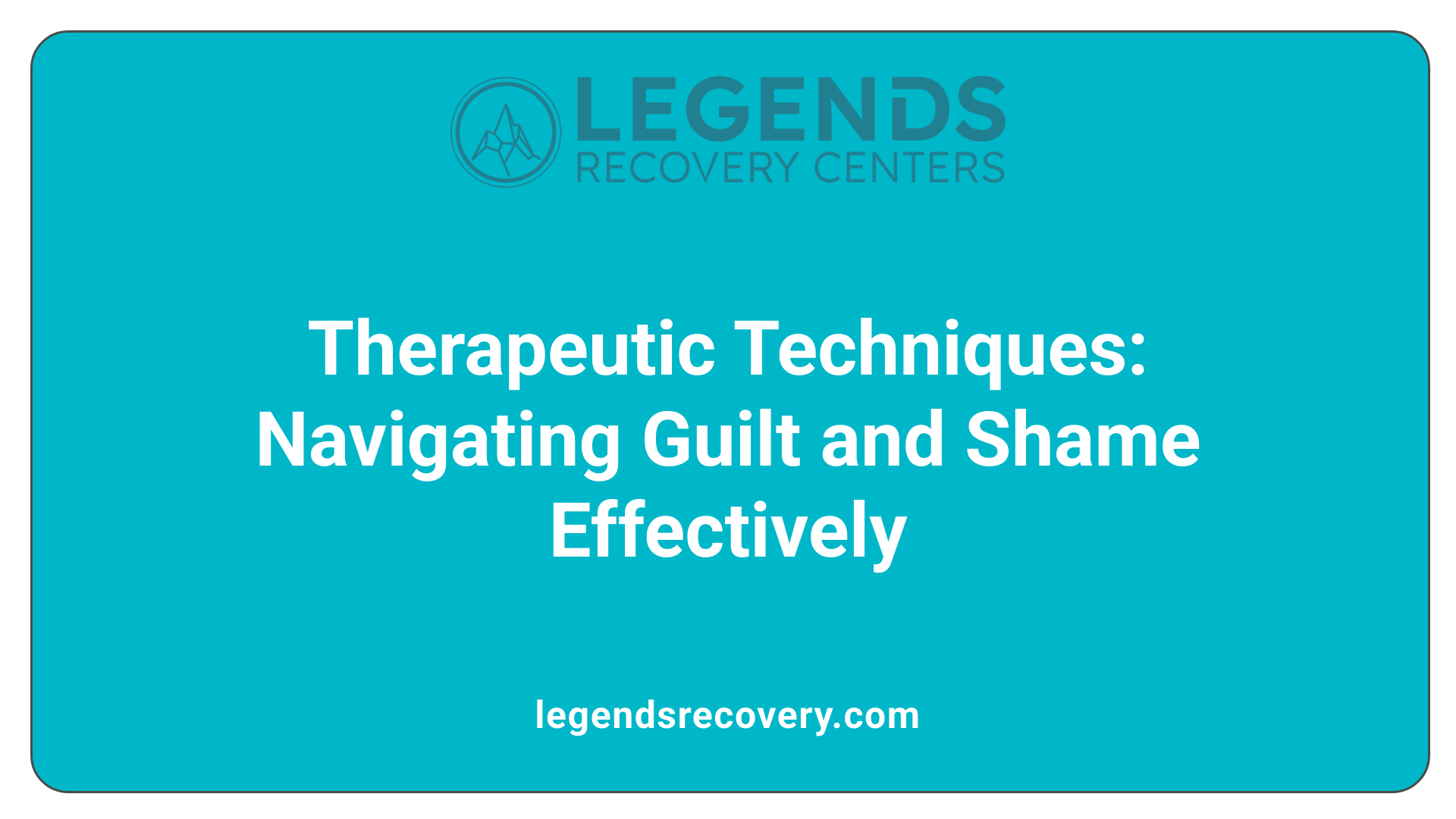
Managing emotions such as guilt and shame is essential for individuals recovering from addiction. Therapeutic techniques focus on recognizing and processing these feelings constructively.
Cognitive-Behavioral Therapy (CBT) is particularly effective in the recovery process. It addresses both guilt and shame by helping individuals:
Understanding and employing these therapeutic strategies can significantly enhance emotional resilience, ultimately supporting a more successful recovery journey.
In the journey of recovery, practicing self-compassion is vital. It helps individuals forgive themselves for past actions, reducing the weight of guilt and shame. Embracing one’s imperfections as part of the human experience fosters healing. Recognizing that mistakes don’t define a person allows for growth and empowerment.
Furthermore, support systems play a crucial role in overcoming these negative emotions. Connections with understanding friends or support groups can provide a safe space to express feelings and share experiences. Such relationships encourage individuals to confront their guilt and shame constructively rather than retreating into isolation.
Healthy relationships can significantly enhance recovery. By surrounding themselves with positive influences, individuals can nurture their emotional well-being.
Engaging in discussions about feelings of guilt and shame within a supportive community can diminish these burdens and reduce relapse risk. Families and friends who understand the recovery process can provide invaluable encouragement and motivation. Building these supportive connections is essential for fostering resilience and cultivating a lasting sobriety.
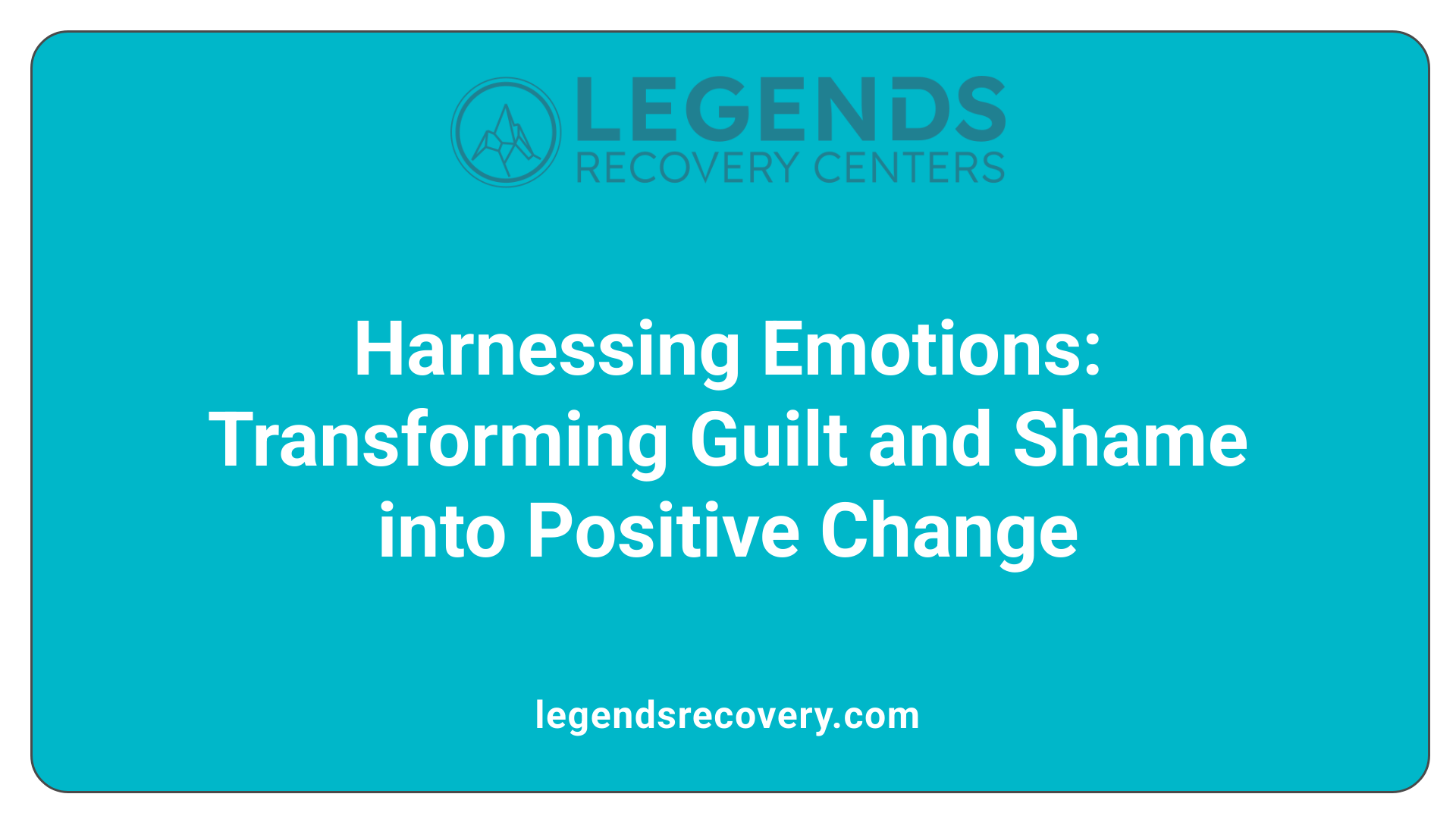
Guilt and shame can be powerful motivators in the recovery journey when properly understood and managed. Guilt often emerges from recognizing past wrongs, pushing individuals towards making amends, which is essential for healing. This emotion can serve as a driving force, urging one to take responsibility and seek forgiveness from those affected during their struggles with addiction.
On the other hand, shame often leads to a negative self-image, fostering feelings of unworthiness. It's crucial to frame shame constructively. By venturing into therapeutic discussions, individuals can transform their shame into a vehicle for motivation, leading to personal growth and empowerment.
Understanding the distinction between guilt and shame plays a vital role in recovery. While guilt is about actions, shame can reflect a person's view of themselves. Learning to forgive oneself and working with competent therapists allow individuals to confront these feelings without becoming paralyzed by them.
Healthy coping mechanisms, such as journaling and mindfulness, can also facilitate emotional processing. Engaging in supportive relationships enhances this journey, offering a backdrop for self-compassion and acceptance. By utilizing these abilities, negative emotions can be redefined as pathways to transformation rather than obstacles to recovery.
Addressing guilt and shame in addiction recovery is vital for fostering resilience and paving the way for long-term sobriety. By understanding these emotions and employing effective strategies to manage them, those in recovery can cultivate a healthier self-identity and embrace a more positive future. Through therapeutic support, personal growth, and the nurturing of supportive relationships, individuals can transform the challenges of guilt and shame into empowering tools for lasting change.